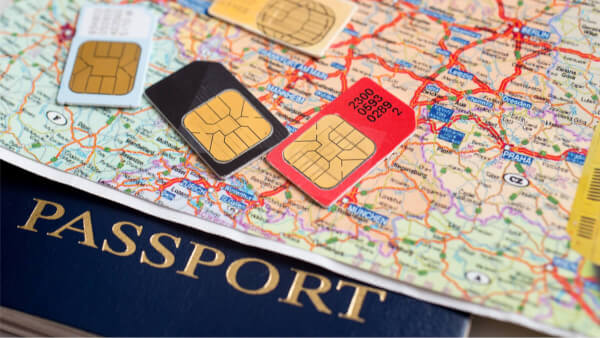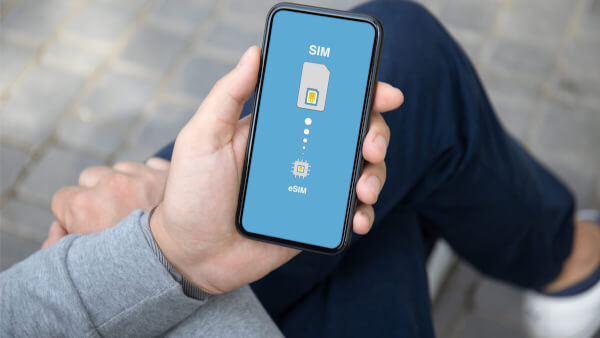RACQ Travel Insurance. What’s on offer and how does it work?
Planning an overseas adventure or even a run-of-the-mill business trip? If so, hopefully securing adequate protection through travel insurance is high on your...

From the historic sights of Rome, to the cutting edge fashion of Milan, romance in Venice, or fine food and drink - well, more or less anywhere, Italy really has it all.
Italy is a fantastic destination, but it isn’t cheap. Whatever you choose to spend your time on, you’ll be able to do more if you have a bit of a budget to play with. This guide will take a look at some of the great options on offer in Italy, as well as practical considerations for planning your trip. We’ll also highlight a smart way to make your money go further with a Wise multi-currency account and linked Mastercard.
There’s no shortage of things to do in Italy. While there are tours available which will ensure you take in key sights, it’s also a destination which allows rewarding independent travel. With a bit of research, you can design your own itinerary based on your personal interests and the amount of time you have.
Use the official Italian tourist board’s website for inspiration to get you started¹. There are suggestions based on Italy’s beautiful nature, culture, art and history, as well as ideas for those looking for a more active trip.
If you’re travelling independently you’ll also want to think about practical details, such as the best way to get from the airport to your hotel when you arrive, and places to exchange money cheaply if you choose to carry cash. Don’t risk compounding jet lag with frustration if you arrive and can’t easily get your holiday vibe started because of poor connections or a lack of cash.
It’s also worth taking a look at the Smart Traveller website - provided by the Australian government². This is a good place to find general advice for your trip, including information on crime, safety and visas.
Italy isn’t a cheap destination, particularly in the major cities. Make your money go further with these tips.
Whether at home or on arrival, you’ll need to exchange money at some point so you can spend in Italy. To check you’re getting a good deal, you can get an online currency converter or app, which will show the current mid-market exchange rate from dollars to euros.
Compare the mid-market rate against the rates used by your bank or currency service. You might notice that an additional fee has been added, on top of any transparent commission you’re paying.
Adding a markup like this is fairly common, but can mean you pay more than you expect for your currency. Avoid paying this extra fee, with the Wise multi-currency account and card. More on that later.
Using your bank card when you travel is usually a good way to get a decent exchange rate. But you’ll need to check the terms of your account before you head off, to see if there are any extra charges when using your card overseas.
You might find foreign transaction charges, or flat administrative fees for ATM withdrawals, which can quickly mount up.
If you’re using your card to make a payment or withdrawal in Italy and are asked if you would like to pay in dollars instead of euros, you should say no. This is an example of DCC - a common pitfall for travellers.
Paying in dollars sounds simple, but can be expensive - pay in the local currency wherever you are to avoid high fees.
A specialist account is a good way to save when you travel. Take a look at the Wise multi-currency account which offers a linked multi-currency Mastercard, as well as currency conversion using the mid-market exchange rate with no hidden fees.
You can hold dozens of currencies, and top up using dollars before switching to the currency you need for your trip. It’s then free to spend any currency you hold using your card, cutting out foreign transaction fees, and leaving you more to spend on yourself.
The Australian government advice is to take normal safety precautions when in Italy. Like anywhere else in the world, there is crime, so you’ll need to be vigilant about safety, and look after your belongings wherever you are. Italy also experiences earthquakes and forest fires. Keep an eye on local media during your trip to make sure you don’t run into any unexpected issues.
It’s good to know that there’s a reciprocal healthcare agreement between Australia and Italy, which means you should be able to access care at a public hospital if you need it. Show your Medicare card and passport upon arrival. You’ll still need travel insurance, though, which should cover all the activities you intend to undertake while in Italy.
If you are unlucky enough to have any problems while you’re overseas, the Australian consular service may be able to help. Learn more on the Smart Traveller website³.
If you plan on staying in Italy for under 90 days, you probably don’t need a visa. However, if you want to stay for more than 90 days, plan on working, or are visiting Italy as part of a longer trip around Europe, you may need to get a visa to cover your stay⁴.
It’s also worth knowing that an electronic travel authorisation system - known as ETIAS - is being brought in to Italy and the rest of the Schengen area. This will ultimately mean that all visa free travellers still need to apply online for a travel authorisation before they can enter the region. ETIAS visas are expected to be phased in by 2021, so check the details before you travel⁵.
Italy is an extremely popular tourist destination, and booking your accommodation in advance is advisable throughout the high season, at weekends and over the Christmas break. You’ll have a good range of options from basic to luxury - here’s an idea of the choices, as suggested by the Rough Guide:⁶
It’s worth doing some research to find the right accommodation for your stay. Some hotels will have a fixed minimum night stay, especially in popular areas at peak times, and others may force guests to pay extra for breakfast, or even half board. A bit of homework will mean you find the right deal for your needs.
Travelling within Italy is easy to do - public transport is effective and relatively cheap, or you can hire a car to have more flexibility. It’s worth noting that public transport options are reduced - or may stop entirely - on Sundays and public holidays, so you’ll need to plan accordingly.
There’s an excellent network of both local and regional trains in Italy. For short journeys you don’t need to book in advance, but for intercity and regional travel, you’ll get a better fare if you book before you arrive at the station⁷.
If you want to travel independently you can also hire a car or camper van. You’ll need to be over 21 and will be usually be asked to provide a credit card as a deposit when you pick up a car. Car hire isn’t cheap, so shop around for the best deal.
You’ll need an International Driving Permit and your Australian license to drive legally - and it’s worth heeding the Australian government’s warnings about road and traffic conditions, which can be disorganised compared to at home.
You could visit Italy multiple times and still not really scratch the surface. There’s so much to see, the bigger issue is usually where to start. Here are a couple of ideas to get you thinking;
Here are a few more tips before you travel to Italy, to make sure you have a fantastic trip.
Any trip to Italy will be tremendous fun. Make the most of your time there by saving money with a Wise multi-currency account and linked Mastercard. Pay less in bank and currency exchange fees when you travel, and have more left in your pocket for yourself.
Sources:
All sources accurate as of 11 February 2020
*Please see terms of use and product availability for your region or visit Wise fees and pricing for the most up to date pricing and fee information.
This publication is provided for general information purposes and does not constitute legal, tax or other professional advice from Wise Payments Limited or its subsidiaries and its affiliates, and it is not intended as a substitute for obtaining advice from a financial advisor or any other professional.
We make no representations, warranties or guarantees, whether expressed or implied, that the content in the publication is accurate, complete or up to date.

Planning an overseas adventure or even a run-of-the-mill business trip? If so, hopefully securing adequate protection through travel insurance is high on your...

If you’re preparing to head overseas it is essential to invest in insurance and to make sure you understand your coverage and associated claim limits. Even if...

If, like so many Aussies, you love to travel overseas and enjoy new places and experiences, ensuring that you’re properly insured while travelling is a must -...

The advancements in telecommunications and technology have been rapid over the last two to three decades. Not only have mobile phones become smaller for the...

Most people are familiar with SIMs and how they work. They help you stay connected by facilitating access to internet data, calls and texts on mobile...

There’s no denying that ongoing tech developments have made travelling abroad much easier than it was in decades past. Access to the internet and the ability...